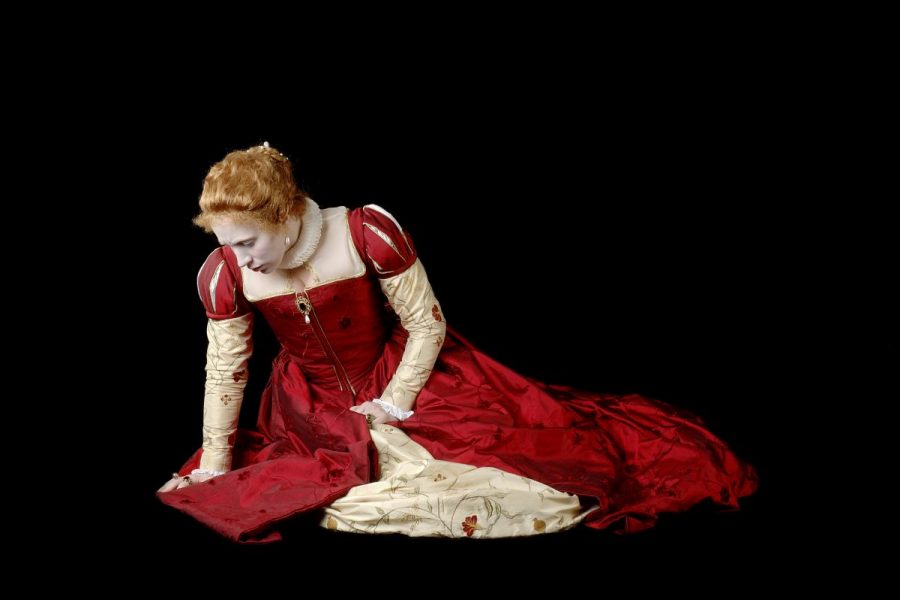@ Assembly Roxy, Edinburgh, until Mon 31 Aug 2015 @ 11:45
The most intriguing fact about Dyad Productions’ I, Elizabeth, is that it is wholly constructed from the letters, speeches, poetry and prayers that the Virgin Queen left to posterity. Writer Rebecca Vaughan, who also plays Elizabeth, has nevertheless crafted an original script that offers something new, and even a little astonishing, to those already familiar with the monarch’s story.
The young Queen is at an impasse: under considerable pressure to marry and produce an heir, or at least to name a successor to her throne, she turns in desperation to the audience. At this point, we see the woman beneath the crown, human to the point of suffering frequent and blinding migraines, and on the verge of admitting her love for a subject and her desire for a child.
Quickly, however, the Queen subdues this woman, and all the reasons why she should never name an heir are laid out before us. The drama and urgency of the play stem not so much from a specific threat or event (although the catalyst for the monologue is a letter she has received), but from a sense that this point, right now, will define the character of the Queen for the remainder of her reign, which in turn will determine the likely length of it.
There is an assured polish about this production that is evident from the outset: in the set and lighting which, being clean and simple, are an excellent foil to the drama; in Guy Masterson’s direction; in the magnificent costumes that must have been sweltering to wear; and—above all—in the superlative performance of Rebecca Vaughan as Elizabeth. Superlative, because words such as “mighty”, “masterpiece” and “tour de force” are too tempting to employ when experiencing this actress’s presence at the height of her power (and the foundation of Elizabeth’s).
If quibbles are to be found, they are that the piece is a little over-long for the complexity of the language, and that the stakes are a little too general. The Queen’s dilemma becomes most palpable when she grapples with her love for her rebellious cousin, Mary (Queen of Scots), and this could stand to be more than just a brief chapter in the play. Nevertheless, these are quibbles indeed when matched against the remarkable experience of witnessing the flame-haired Queen herself burst into the room—and not just through her words: this was Elizabeth Regina, in mind, soul and body.
